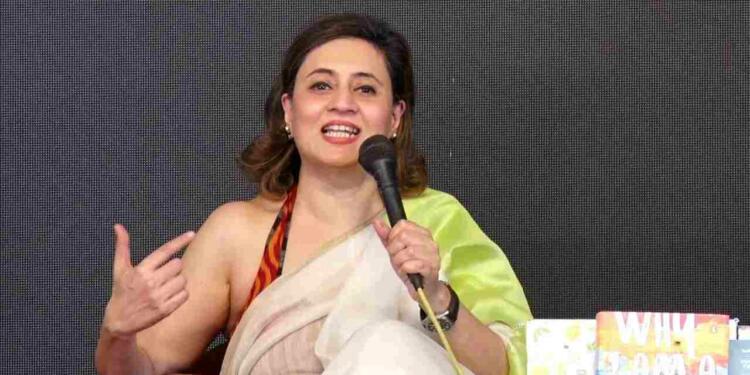MP Sagarika Ghose Announces Legal Action Against OpIndia and Its Journalist
In recent days, social media has been abuzz with claims that TMC Member of Parliament Sagarika Ghose has allegedly threatened to file FIRs against OpIndia and its journalist Anupam Nawada for “trespassing.” The narrative has stirred debates around press freedom in India, with critics pointing out the apparent irony if her husband, senior journalist Rajdeep Sardesai, were to later comment on India’s Press Freedom Index rankings.
Did TMC MP Sagarika Ghose Threaten FIR Against OpIndia Journalist Anupam Nawada?
In a bold and controversial move, Trinamool Congress (TMC) Member of Parliament Sagarika Ghose has declared her intent to file an FIR for criminal trespass and unlawful entry against OpIndia journalist Anupam Nawada. The declaration was made via her official Twitter account on May 28, 2025, at 7:44 PM, where she explicitly named the journalist and the right-leaning digital news outlet OpIndia.com, tagging @DelhiPolice, @CMODelhi, and @VPIndia, and indicating that Parliament security will also be informed.
This public announcement has ignited an intense debate online, with critics alleging that a public representative using criminal provisions against journalists sets a dangerous precedent. The issue gains further attention due to Ghose’s media background and her marriage to veteran journalist Rajdeep Sardesai, often vocal on matters related to press freedom and democratic accountability.
The tweet in question reads:
TMC MP Sagarika Ghosh is threatening OpIndia & @AnupamNawada for FIRs over alleged 'Trespassing'
— The Analyzer (News Updates🗞️) (@Indian_Analyzer) May 28, 2025
~ She is an MP. Thriving on Tax Payers Money. She is accountable to the public
Tomorrow her husband will tweet some random Press Freedom Index & vent about our position. Hypocrites pic.twitter.com/hiS7RWLu3S
This digital record serves as direct evidence of her intent to pursue legal recourse against members of the press, marking a rare but significant case of a sitting MP initiating criminal proceedings in response to alleged media misconduct.
Privacy vs Press Freedom: Where Should the Line Be Drawn?
Sagarika Ghose’s decision to invoke Sections related to criminal trespass under the Indian Penal Code raises complex questions. While individuals—including MPs—have a legal right to privacy and protection from unlawful entry, invoking criminal law against a journalist or news portal often invites broader scrutiny under the lens of press freedom, media ethics, and democratic transparency.
OpIndia, known for its ideological opposition to liberal politicians and media figures, has frequently clashed with left-leaning public personalities. The incident is being framed by critics as a clampdown on dissenting media, while Ghose’s supporters argue she is well within her rights to protect her personal property and privacy.
What makes this case uniquely delicate is Ghose’s dual identity—as both a media veteran and a parliamentarian. Her spouse Rajdeep Sardesai has been vocal on global Press Freedom Index rankings and the treatment of journalists in India. This led to sharp responses online, accusing Ghose of hypocrisy and undermining journalistic liberty. From a legal standpoint, if trespass indeed occurred, FIR registration is lawful, but such actions by elected representatives inevitably invite political and ethical scrutiny.
This incident will likely spark ongoing debates in political and media circles regarding how far public figures can or should go when clashing with the press. As the FIR process unfolds, and if legal proceedings commence, the case may become a test case for India’s fragile media-politics relationship. The outcome could either reinforce the rule of law for all citizens, including journalists, or raise alarms about the increasing legal intimidation faced by dissenting voices in journalism. Either way, it places Sagarika Ghose and OpIndia at the center of a charged and evolving national conversation.





















